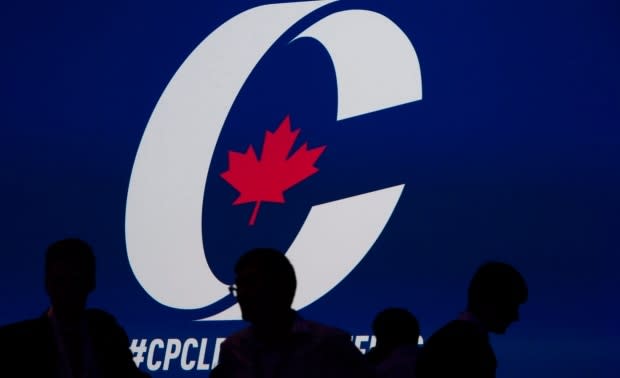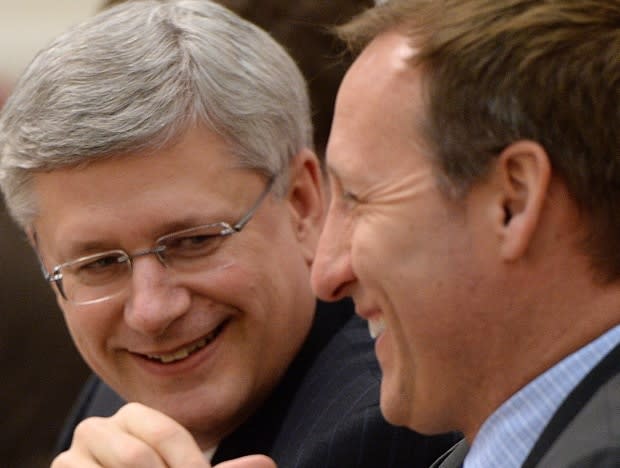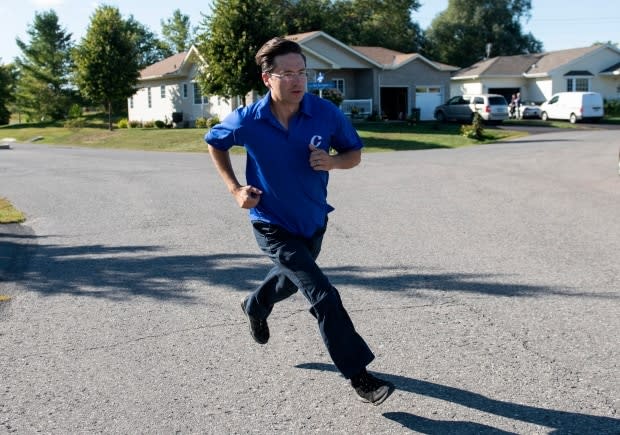Not all lanes will lead Conservative leadership candidates to the finish line
The Conservative Party leadership race is starting to take shape, but there are only so many paths to victory each candidate can take — and limited space in each of them. Some candidates have a better path forward than others.
To date, no one has yet met the bar to be classified as a "verified" candidate by the Conservative Party. Among those who have publicly declared their intention to run, only former cabinet minister Peter MacKay and Ontario MP Marilyn Gladu have a good shot of meeting the party's stringent qualification requirements.
Ontario MPs Pierre Poilievre and Erin O'Toole are expected to enter the race soon, while the decision of former Quebec premier Jean Charest is reportedly imminent.
Other candidates could come forward between now and the Feb. 27 deadline for entry ahead of the June 27 vote.
Each of them will be looking to identify a lane that takes them to the leadership, cobbling together like-minded regional and ideological groupings within the party's membership that are large enough to elect a leader.
These lanes are not always well-defined — and some candidates can blow them apart. Maxime Bernier, the runner-up in the 2017 leadership race, did not have particularly regionalized support. Holding a libertarian worldview, Bernier also defied the old split between the Progressive Conservatives and Reform, the two legacy parties.
But Andrew Scheer's lane was to draw support from the rural parts of the country and a mix of members from across the spectrum, pulling both from moderates like O'Toole and Michael Chong and social conservatives like Brad Trost and Pierre Lemieux. Scheer was able to attract support from both of the old wings of the party in part because Bernier was an unconventional candidate.
The contours of the current roster of likely candidates, however, looks less unusual.
The candidate with the steepest hill to climb is likely to be Gladu, who lacks what could be a decisive factor in such a short race: a high profile. The two-term Sarnia–Lambton MP may be able to build support from ridings in southwestern Ontario, but will have some work ahead of her to break through. The second-choice backing of her supporters, however, could prove a hot commodity by voting day.
But how about the others? What are their most promising paths to victory?
MacKay: The electable centrist
MacKay's path to the leadership looks the most obvious.
He has a few things working in his favour. He has the aura of electability, with polls showing he is more likely than some other candidates to stack up well against Prime Minister Justin Trudeau. His standing as the last leader of the defunct Progressive Conservatives makes him the natural heir to the support of more moderate, centrist members. His dutiful years of service in Stephen Harper's cabinet might also make him acceptable to the Harper wing of the party.
MacKay will likely have a strong and unopposed regional base in Atlantic Canada. Though there are only 32 seats in the region — all seats across the country will be weighted equally in the Conservative voting system — running up the numbers in this one smaller region could pay more dividends than narrowly leading a crowded field in bigger regions.

He is already showing some support in other parts of the country, with endorsements from B.C. MP Ed Fast and Alberta MP Blaine Calkins.
MacKay has the potential for growth as candidates are eliminated from the ranked ballot, particularly candidates like Gladu, O'Toole and possibly Charest, if MacKay's lack of fluency in French is not seen as too big of an obstacle. He already seems to be fishing in O'Toole's pond — both Fast and Calkins endorsed O'Toole in 2017.
Poilievre: The Harper candidate
The clearest path to 50 per cent is to be seen as the Harper candidate — the person who most closely embodies the continuation of the Harper model, both in governing style and in party management. This person has a strong base in Western Canada and among the old Reformers, but is also acceptable to Conservatives in places like the Greater Toronto Area.
Poilievre has the best shot at that title — and that makes him a potentially formidable candidate.
The Ottawa-area MP has a ready-made base in eastern Ontario. His bilingualism will give him a fair chance in Quebec. Born and raised in Alberta, he also has the best claim to being the Western candidate. His team includes Jenni Byrne, Harper's former campaign manager, signalling a tacit (if not necessarily exclusive) endorsement from that camp.
He has potential for down-ballot growth from O'Toole, whose supporters swung to Scheer over Bernier in 2017. If Charest enters the race, Poilievre could also peel votes away from him among members who believe the next leader needs to be bilingual.

But there are still some open questions when it comes to Poilievre. Having played the role of partisan attack dog for his party, members may not see Poilievre as electable in a general election. His recent statements in support of both same-sex marriage and abortion rights could exclude him from getting the social conservative support that was a key component of Scheer's victory.
And the entry of another Western Canadian into the race could scupper Poilievre's hopes of support in that part of the country. The need for one candidate to take the Harper lane is both Poilievre's best chance and greatest vulnerability, as being pushed out of that lane would cost him his spot as a front-runner.
Charest: The electable (?) Quebecer
It is not immediately obvious which lane is Charest's. His standing as a former PC leader (from 1993 to 1998) is shared with MacKay, who helped create the modern Conservative Party but doesn't carry the political taint (in party circles) of also having been leader of the Quebec Liberal Party, as Charest was from 1998 to 2012.

He could claim electability thanks to his profile across the country, flawless bilingualism and experience running (and winning) election campaigns.
But his regional base is likely to be restricted, even in his home province. The areas of Quebec that backed the right-leaning ADQ and CAQ during the Charest years are unlikely to warmly welcome their former opponent. Charest also faces the prospect of an "anybody but Charest" campaign, which could severely limit his growth potential.
O'Toole: The moderate consensus
While O'Toole has a path to the leadership, it could be occupied by other candidates. His best results in the last leadership race came in the Maritimes, a region that is more likely to back MacKay.
Representing a riding in the Greater Toronto Area is an advantage — there are more seats there than in B.C., Alberta or Atlantic Canada — but that is likely to be a hotly contested part of the country. O'Toole did not show great strength in the GTA in 2017, placing first in only five ridings on the last ballot before he was eliminated.

His relatively lower profile and lack of fluency in French chips away at his perceived electability.
But he does have the potential to be a consensus candidate — one that is acceptable to the broadest swath of the Conservative membership, like Scheer in 2017. The problem for O'Toole, however, is that being everyone's second choice only matters if enough voters list you as their first. He might be able to pull significant support from Gladu, MacKay or Charest, but only if he finishes ahead of them.
Much will depend on the final roster of candidates and how the race unfolds. It is early days. But the initial signals suggest MacKay and Poilievre have the most plausible paths to winning the leadership before anyone has taken their first steps.


